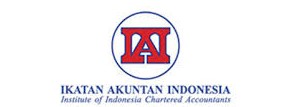Pengaruh Koneksi Politik dan Keragaman Gender terhadap Agresivitas Pajak
Abstract
This study aims to determine the effect of Political Connections and Gender Diversity on tax aggressiveness. The company uses tax aggressiveness to fulfill tax obligations that do not violate tax regulations and do not conflict with laws. The reduction in the tax burden is the main reason for companies to carry out tax aggressiveness. This research is a type of quantitative research. The research sample is mining sector companies listed on the IDX for the 2018-2020 period. This research sample selection method is using purposive sampling method. Secondary data is obtained based on the annual financial reports on the IDX. The results of the study show that political connections have a negative effect on tax aggressiveness and gender diversity has a negative effect on tax aggressiveness. This research contributes to the government being able to improve supervision of companies that have close relationships so that they remain compliant in paying taxes and avoid tax risks.
References
Ayu et al. (2017). Pengaruh Corporate Governance, Koneksi Politik, Dan Leverage Terhadap Penghindaran Pajak. E-Jurnal Akuntansi, 18(3), 2028–2054.
Bismark, R., Kowanda, D., & Widyastuty, E. D. (2016). J Urna L. Jeb, 10(3), 143–156. https://pdfcoffee.com/58-18-pb-pdf-free.html
Dyreng, S. D., Hanlon, M., & Maydew, E. L. (2010). The effects of executives on corporate tax avoidance. Accounting Review, 85(4), 1163–1189. https://doi.org/10.2308/accr.2010.85.4.1163
Frank, M. M., Lynch, L. J., & Rego, S. O. (2009). Tax reporting aggressiveness and its relation to aggressive financial reporting. Accounting Review, 84(2), 467–496. https://doi.org/10.2308/accr.2009.84.2.467
Hanlon, Michelle, J. S. (2007). What Does Tax Aggressiveness Signal? Evidence Evidence from Stock Price Reactions to News About Tax Aggressiveness. 1.
Indrawan, R., Binekas, B., Akuntansi, J., Yani, J. A., Akuntansi, J., & Yani, J. A. (2018). Pengaruh Karakteristik Dewan Komisaris terhadap Aggressive Tax Palnning pada Perusahaan yang Terdaftar di BEI Periode 2013-2015. 6(3), 419–428. https://doi.org/10.17509/jrak.v4i3.4670
Jarboui, A., Kachouri Ben Saad, M., & Riguen, R. (2020). Tax avoidance: do board gender diversity and sustainability performance make a difference? Journal of Financial Crime, 27(4), 1389–1408. https://doi.org/10.1108/JFC-09-2019-0122
Kim, C., & Zhang, L. (2016). Corporate Political Connections and Tax Aggressiveness. Contemporary Accounting Research, 33(1), 78–114. https://doi.org/10.1111/1911-3846.12150
Lanis, R., & Richardson, G. (2018). Outside directors, corporate social responsibility performance, and corporate tax aggressiveness: An empirical analysis. Journal of Accounting, Auditing and Finance, 33(2), 228–251. https://doi.org/10.1177/0148558X16654834
Li, C., Wang, Y., Wu, L., & Xiao, J. Z. (2016). Political connections and tax-induced earnings management: evidence from China. European Journal of Finance, 22(4–6), 413–431. https://doi.org/10.1080/1351847X.2012.753465
Martinez, A. L. (2017). Tax aggressiveness: A Literature Survey. Revista de Educação e Pesquisa Em Contabilidade (REPeC), 11(0), 106–124.
Purwanti, S. M., & Sugiyarti, L. (2017). Pengaruh Intensitas Aset Tetap, Pertumbuhan Penjualan dan Koneksi Politik Terhadap Tax Avoidance. Jurnal Riset Akuntansi & Keuangan, 5(3), 1625–1641.
Satiti, A. D. R., Syafik, M., & Widarjo, W. (2021). Political Connections and Tax Aggressiveness: the Role of Gender Diversity As a Moderating Variable. Media Riset Akuntansi, Auditing & Informasi, 21(2), 273–292. https://doi.org/10.25105/mraai.v21i2.9794
Setiawati, R. A., & Ammar, M. (2022). Analisis Determinan Tax Avoidance Perusahaan Sektor Pertambangan di Indonesia. Jurnal Manova, 5(2), 2685–4716.







.png)
.png)
